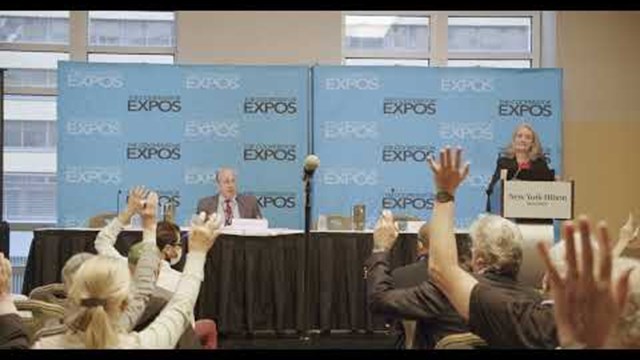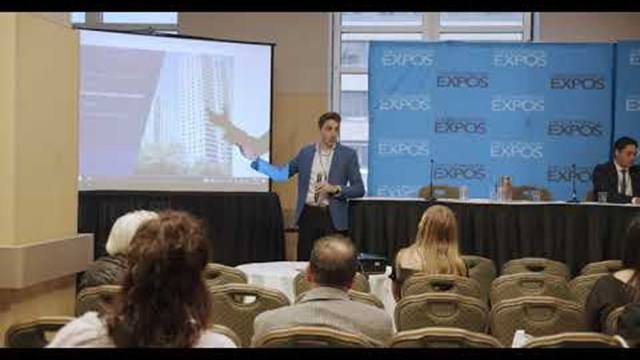
The importance of saving for a rainy day is a lesson we all learn as children. Just like we as individuals should put away a little something for that ‘just-in-case’ moment, co-op corporations and condominium associations must also keep reserve accounts for unexpected as well as planned replacements and repairs. The question is how much money they should keep on hand. The answer to that depends to a great extent on what the portrait of the community looks like.
Why Reserves Really Matter
“When people seeking to buy a condo or co-op see an anemic reserve fund, it can have an impact on their decision to purchase [in that building or association],” says Jayson Prisand, a partner with Prisand Mellina Unterlack & Co., LLP, an accounting firm in Plainview, New York. “If they see that the necessary improvements are being made, that there is money to pay for them, they are comfortable. If the money isn’t there, potential buyers know there may be an assessment. It’s a red flag. Many people won’t buy into’ a situation like that.”
Another major reason to keep capital reserves at adequate levels is the possibility of the unexpected.“In a condo or co-op,” says Greg Cohen of Impact Real Estate Management, a New York-area property management firm, “there are unexpected situations. New York City is always changing laws and regulations. There are new regulations, and items that require upkeep, and these can be costly. For example, Local Law 11 – or the new requirement for elevators to have automatic door monitoring systems, which have to be installed by the beginning of 2020. If a corporation or association is underfunded, the building has no cushion from these new requirements, and these are potentially expensive. You must also be able to maintain your physical infrastructure and do other repairs at the same time.”
A third reason to keep reserves at adequate levels, particularly in co-ops, is their necessity when seeking financing. Stuart Bruck, a commercial mortgage broker with Time Equities Inc., a real estate firm in New York City, points out that adequate reserves are required by banks and other lenders when refinancing underlying permanent mortgages and/or lines of credit. “Banks require replenishment of reserves if they are too low when refinancing an underlying permanent mortgage or other financing vehicles,” he says. Skimpy or depleted reserves can not only cost you when it’s time to fix the boiler; they can be a roadblock to a lot of other financial necessities.
What Are the Alternatives?
When considering how to maintain and how much to keep in reserve, one of the biggest factors to take into account is the financial profile of the community’s individual shareholders or unit owners. Basically, there are three approaches to funding reserve increases or replenishments: the board can levy an assessment; build a monthly line item into its common charges or maintenance fees; or – in the case of a co-op – borrow money, offering the building as collateral. (Condo associations can also borrow money, but under different collateral arrangements, which we will return to later.)
The vast majority of residents in co-op and condo communities are people for whom a large assessment would be difficult to manage on short notice. There are properties, though, where residents have sizable assets and prefer to keep their money working for them, not the corporation or association. “It’s not common, but if unit owner net worth is high enough, they just assess,” says Andrew Freedland, an attorney with Anderson Kill in Manhattan. “Occasionally I see it. Usually in small buildings with very well-heeled owners who have the ability to write a large check if they have to. This represents a very small minority of buildings.”
A more common – and less painful – method of bulking up reserves is to build a line item into residents’ monthly maintenance or common charges. Each month this money is collected and placed in the association’s or corporation’s reserve accounts. In many buildings, this is a common practice already in place. Many unit end-loan lenders for co-op and condo purchases require that buildings have not only a minimum capital reserve, but that monthly charges include a line item for replenishment. For example, FNMA (Federal National Mortgage Association or ‘Fannie Mae’), which purchases these end loans on the secondary market, requires a 10 percent reserve line item as a condition of the loan purchase.
The third alternative is to replenish reserves through financing. This method is more applicable to co-ops than condos, as co-op properties carry underlying permanent mortgages against the entire property (Condominiums cannot place a lien against the entire property because each unit is held in fee simple as an individual unit of real estate). For co-ops, reserve accounts can be replenished by borrowing and depositing the borrowed funds into the reserves, or by taking a line of credit, along with an underlying mortgage, to be tapped when major work is required. However, Prisand points out that “inadequate reserves can also lead to higher interest rates, escrows or reserve requirements.”
Options for Condos
In the past few years, some banks and other lending institutions have begun to look at financing of condominium associations from a different point of view. Financing for capital improvements is now available. “Condos don’t borrow as often as co-ops,” says Freedland. “But there is financing available now, secured by the condominium’s receivables.” In other words, the association’s monthly common charges and reserve accounts are pledged as collateral against the loan – making the reserves even more important. “Lenders want to see that they have adequate reserves,” reiterates Freedland.
When the Big Stuff Is Done
Say you live in a successful, mature and well-functioning co-op property. Over the past few years, the building has pretty much handled all the major repairs and maintenance needed to keep it in good shape for the immediate future; the boiler has been refurbished, conversion from oil to gas is complete, the roof and sidewalks have been replaced, the elevators upgraded, and the lobby and hallways redecorated. Everything looks amazing and the building’s reserves are slowly building back up from all the major outlays, though it’ll take awhile for them to fully rebound. Do you need to rush to replenish your reserve accounts to previous levels?
“If it’s a timing issue, and if the building has done all necessary work, it’s an individual decision,” says Prisand, adding that there are potential ramifications of not replenishing. Buyers’ attorneys may be uncomfortable with the low reserves, regardless of whatever major work has already been done. Potential lenders will have minimum reserve requirements that must be met, regardless of how new the roof is. According to all of our experts, the best path to replenishment is slowly through small monthly increments included in common charges or maintenance so the financial pain is minimized. They also suggest that reserve funds should never be used to subsidize lower monthly charges to residents, and that maintenance or common charges should be increased by two or three percent each year on a regular basis to keep up with inflation, and to get residents used to the idea of regular increases, just in case.
A Case in Point
Bruck relays a story about his own co-op, a 220-unit building on Manhattan’s Upper West Side. The building, which was in top overall condition and financially healthy, ran into an acute problem with its gas meters after a routine visit by Con Edison. The building was required to install new valves in each apartment at a substantial expense. The work wasn’t anticipated, but the shareholders were grateful they had a properly-funded capital reserve to get the needed work done immediately.
Saving for a ‘rainy day’ is not only good advice, but good policy. Like individuals, co-op and condo buildings need savings in the form of reserve funds. We never know when an emergency will occur; that’s why it’s called an emergency. Keeping those reserves at an acceptable level protects the association or corporation and the residents against the unknown and helps them plan for regular maintenance. Like an insurance policy, reserves guard us against the unexpected, both physically and financially.
A J Sidransky is a staff writer/reporter for The Cooperator, and a published novelist.









2 Comments
Leave a Comment